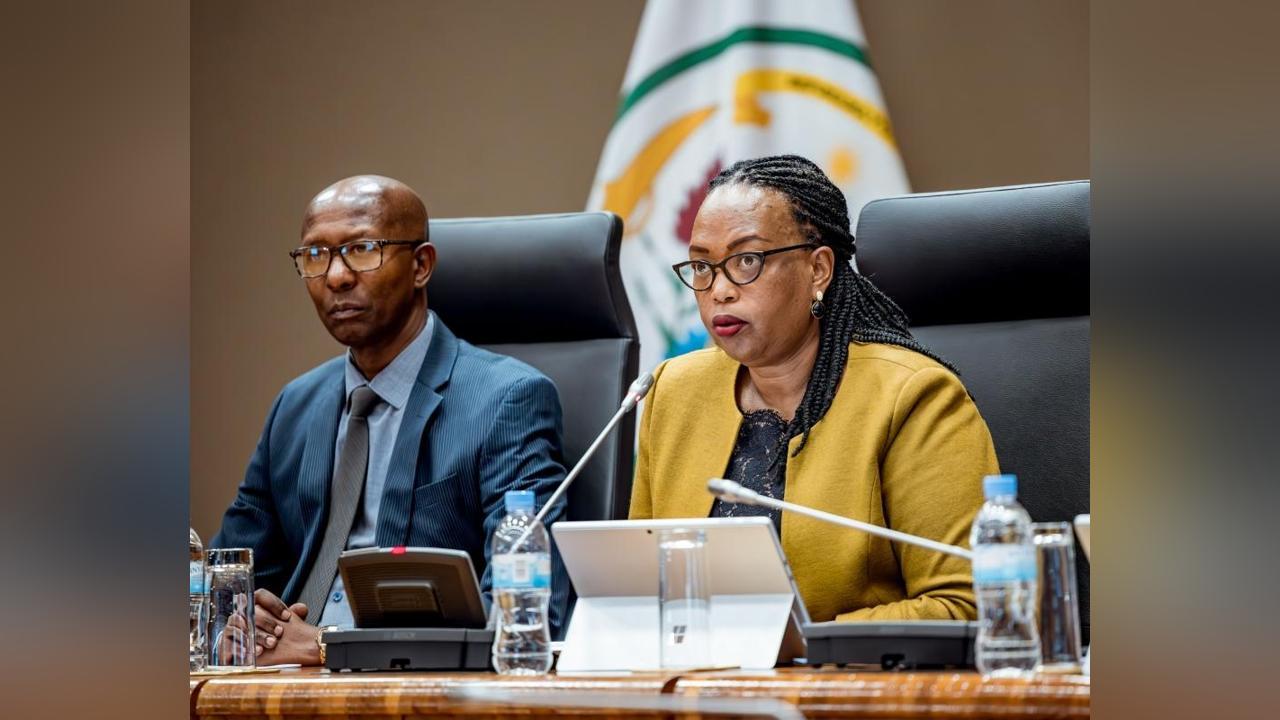Africa-Press – Rwanda. National Commission for Human Rights (NCHR) has reported a 30 per cent reduction in correctional facilities overcrowding in Rwanda since 2023/2024.
Providence Umurungi, the Chairperson of the Commission, said this on Wednesday, October 15, while presenting the Commission’s annual report to both chambers of Parliament.
Umurungi attributed the decline primarily to the use of Alternative Dispute Resolution (ADR) mechanisms, such as mediation and plea bargaining as well as the opening of Nyamasheke Correctional Facility.
According to the Commission, a total of 74,253 people were incarcerated across 14 correctional facilities, including 68,944 men, 4,773 women, 516 boys, and 20 girls. As of August 31, RCS data showed that correctional facilities with a total capacity of 68,933 inmates were housing 71,561 people, confirming the ongoing reduction in overcrowding.
She said an inspection conducted in March 2025 to assess the respect of prisoners’ rights, the Commission found that overcrowding had fallen from 134.3 per cent in 2023/2024 to 110 per cent in 2024/2025. By August 31, this year, Rwanda Correctional Service (RCS) reported a further drop to 103.8 per cent, she added.
Umurungi indicated that continued use and increased understanding of ADR would bring further improvements in reducing congestion.
“We also conducted advocacy for correctional facilities such as Rwamagana, which continue to face overcrowding and strain nearby health facilities due to their large inmate population. This could pose serious challenges, especially during disease outbreaks such as tuberculosis,” she said.
Other factors contributing to reduced congestion included provisional releases, presidential pardons, greater use of non-custodial sentences, and more prisoners completing their sentences than new convictions.
The MPs commended the reduction in prison overcrowding.
Senator Marie Rose Mureshyankwano noted that in previous years, the NCHR reports had shown increases in inmate numbers.
“I hope the measures taken continue to be implemented. Reducing overcrowding from more than 134 per cent to around 100 per cent is a major achievement,” she said.
Senator Sosthene Cyitatire also praised the decline, highlighting the role played by the opening of Nyamasheke Correction Facility in easing congestion.
Umurungi said the Commission plans to continue advocacy to improve conditions in correctional facilities and detention centres.
During inspections over several months, the Commission recorded that 112 detention centres held a total of 5,927 inmates, including 5,096 men, 602 women, 211 boys, and 18 girls.
While overall inmates’ rights were respected, some facilities still lacked accessible toilets for persons with disabilities.
She also spoke about issues in detention centres.
“The centres do not provide special diets or treatment for those with specific needs. Children detained with their mothers often lack appropriate care unless officials make individual arrangements,” Umurungi explained.
“Some facilities lack bedsheets or medical coverage for those without insurance. While some prisons coordinate with detainees’ districts of origin, this practice is not consistent. Most people stay fewer than five days, but in some cases, detention lasts up to 20 days.”
The Commission also requested information from the Office of the Prosecutor General regarding cases resolved through plea bargaining. Since the programme began, 21,697 cases have been concluded, with 11,846 resolved in 2024/2025 alone.
NCHR’s report highlighted improvements in detention facilities, noting better respect for detainees’ rights to decent living conditions and timely investigation or prosecution. Detainees are increasingly informed of their rights.
For More News And Analysis About Rwanda Follow Africa-Press






